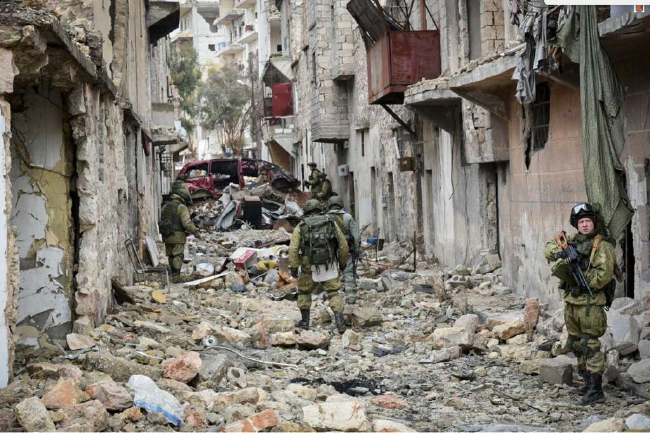The heart-wrenching stories of war victims and disgusting rehearsal of radical ideologues fill one with a sense of fear and hatred. Streams of blood oozing from riddled bodies and sliced throats compound the public tragedy. Aylan Kurdi – a three-year-old Syrian boy whose image made global headlines after he drowned on September 02, 2015 in the Mediterranean Sea – was also the sacrificial lamb of war and his family intended to heave a sigh of relief in foreign country. Syria and Iraq bore the brunt of militancy and sustained large casualties, mainly with the emergence of the self-styled Islamic State of Iraq and the Levant (ISIL).
Last year, at least 6,878 civilians were, reportedly, killed 12,388 more were wounded in Iraq as the government sought to maintain security. However, figures did not include casualties among civilians in Iraq’s western Anbar province for the months of May, July, August and December. The monthly UN casualty report for December 2016 showed that a total of 386 civilians were killed and another 1,066 were wounded. The worst affected area was the northern province of Ninevah, where government forces are fighting to retake the ISIL-held city of Mosul, with 208 civilians killed and 511 injured. The capital, Baghdad, came next with 109 civilians killed and 523 injured. In the last week alone, ISIL claimed responsibility for a string of bombings in Baghdad that killed more than 50 people. The deadliest ISIL attack was in July when a massive suicide bombing in a bustling market area in central Baghdad killed almost 300 people, the bloodiest single attack in the capital in 13 years of war.
The Syria’s war posed serious threat not only to the region but to the entire world as the ISIL fighters involved super powers in war. Basically, the Syrian freedom-fighters intended to gain democracy through devastating the Asad’s regime, however, the war inflicted heavy casualties upon the Syrian nation as the ISIL fighters fished in the troubled waters and capitalized on it. They channeled the war to racial and religious backgrounds and imposed large casualties upon the ethnic minority groups. According to the UN, approximately 400,000 Syrians have been killed in the conflict that dates back to a 2011 popular uprising against Assad’s regime. In addition, about five million have fled into neighboring countries over the years, while six million remain internally displaced. The UN has described the situation as the “biggest refugee and displacement crisis of our time”.
Considering this fact, gaining democracy will be a pyrrhic victory and Syria has paid great sacrifices. It is believed that the war has come to a stalemate, especially with the involvement of many parties in this war, and Syrian nation is unable to put an end to this devastating war. The more this war continues the heavier casualties it will cause and the civilians and ethnic minority groups will be burning in this fire. The international community will have to stop violence and bloodshed in Syria as soon as possible or at least bring the government and anti-government group to the negotiating table.
It is said that Russia and Turkey have brokered the stalemate and the truce was to have been followed by talks between mainstream rebel factions and government representatives in the Kazakh capital of Astana. But while fighting has largely ebbed in Syria’s north, where Turkey holds influence over most rebel groups, troops allied to Syrian President Bashar al-Assad have continued to press an offensive in the Damascus suburbs.
In a statement published late Monday, 10 rebel factions said they were suspending talks relating to the Astana negotiations or any discussions related to the cease-fire “until it is fully implemented,” citing “major and frequent violations” in the rebel-held areas of Wadi Barada and Eastern Ghouta outside the Syrian capital. Turkish President Recep Tayyip Erdogan hailed the truce as a “historic opportunity,” but experts say it had problems from the start. Most notably, the Syrian army said that “terrorist” organizations would be exempt, implying that Jabhat Fatah al-Sham, an al-Qaeda affiliate and an influential component of what remains of Syria’s armed opposition, would continue to be targeted.
The deal’s shaky progress also underscored the fact that no single player can now fully deliver the government or the rebel side. While Russia has burnished its reputation as a mediator in weeks of talks with Turkey, it now appears unable to bring the Syrian government in line with the cease-fire. Turkey has also struggled to bring the most important rebel factions on board. While two of the highest-profile Islamist groups, Ahrar al-Sham and Nour al-Din al-Zinki, have agreed to uphold the cease-fire, they have not signed any agreement to attend peace talks.
Home » Opinion » Syria’s War – An Infected Wound
Syria’s War – An Infected Wound
| Hujjatullah Zia

